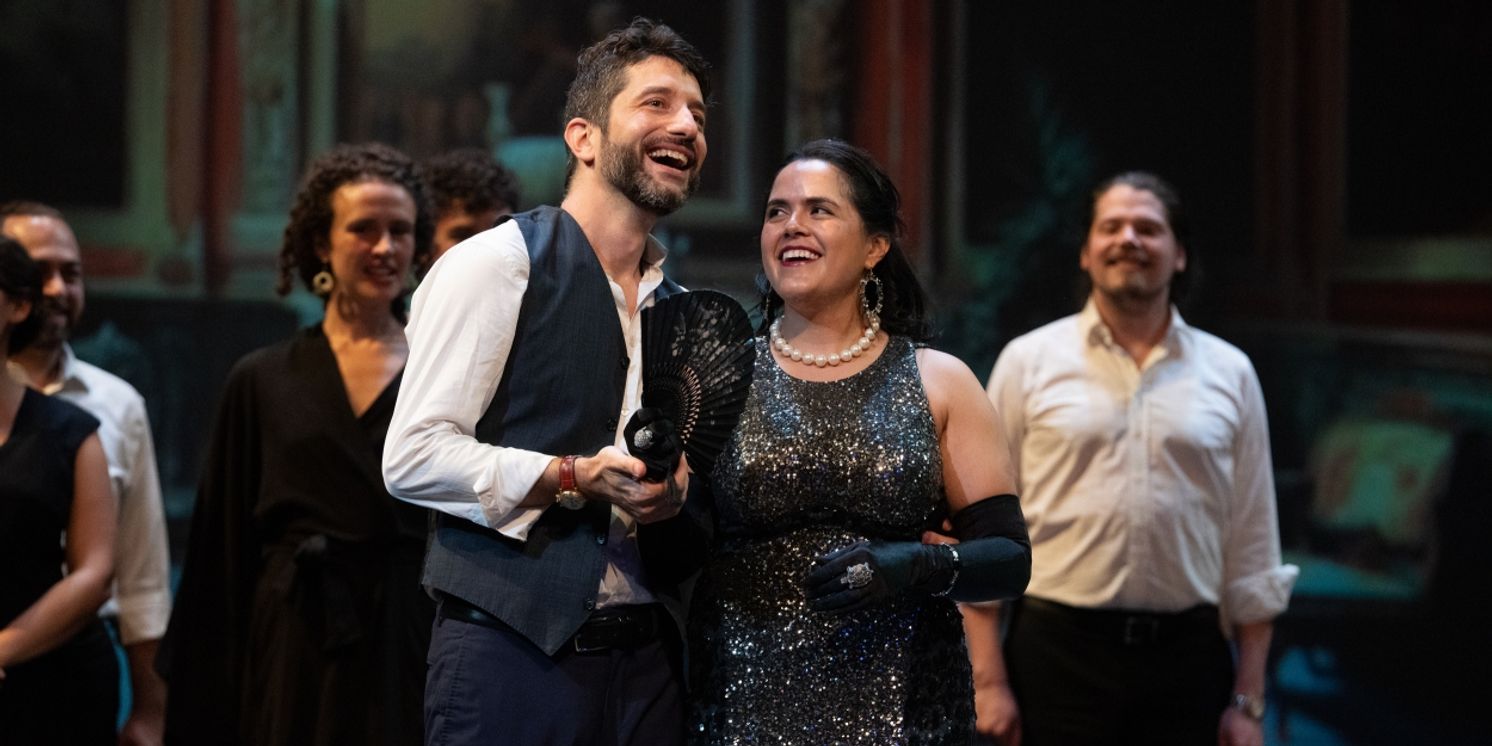Review: Crutchfield's Teatro Nuovo Turns Fairy Godmother as CRISPINO Returns to New York
Crisp Performances Enliven Satiric 19th-Century Opera that Once Made It to the Met

The famed playwright and wit George S. Kaufman once said, “Satire is what closes on Saturday night.” One can only imagine what Kaufman--whose credits include THE MAN WHO CAME TO DINNER and YOU CAN’T TAKE IT WITH YOU, as well as the source of Sondheim’s MERRILY WE ROLL ALONG, which is circling Broadway for a return this fall--would have had to say about satiric operas.
Yet there are always exceptions. CRISPINO E LA COMARE (CRISPINO AND THE FAIRY GODMOTHER), a lively and lightweight 1850 comic piece by Federico and Luigi Ricci, was happily rescued from obscurity this week by Will Crutchfield's Teatro Nuovo to delighted local audiences.
Jonathan Brandani did a fine job leading the company's wonderful, authentic orchestra and chorus from the harpsicord (cembalo). He got the most out of the entertaining score, with its libretto by Francesco Maria Piave--much better known for his work with Verdi on RIGOLETTO and LA TRAVIATA. While the story may have seemed a little padded at the start, it improved as the opera went along in a most entertaining way.
After opening its season with the fairly obscure, very dramatic Donizetti POLIUTO, the company turned its sights on this comedy from the same era, presenting a pair of performances of CRISPINO, first at NJ’s Montclair State then moving on to the Rose Theatre at Jazz from Lincoln Center on Thursday, with a game cast and some disarming, if somewhat unmemorable, music.
The story, in brief: A struggling cobbler, Crispino, and his wife Annetta (an equally challenged seller of songs and stories) in 17th century Venice are saved from misfortune by a Fairy Godmother, who intends to use the shoemaker to teach a lesson to all the pompous and greedy doctors of Venice. She transforms him into a gentleman homeopath (though he is, in fact, illiterate), planning to tell him who will live and who will die, so he can miraculously save them or show his infallible judgment. A few surprising twists and turns occur before the piece concludes with a (tada!) happy ending.
While CRISPINO won’t push aside some of the genre’s comic standards--FALSTAFF, LA FILLE DU REGIMENT or IL BARBIERE DI SIVIGLIA, for example, have nothing to fear--it provided some juicy opportunities for the singers and came across as less dated than some other, more familiar, works.
The wonderful bass-baritone Mattia Venni in the title role stood out whenever he was on stage, though there wasn’t a real solo for him to sink his teeth into. The most famous of the opera’s arias is for Annetta (his wife), “Io non sono più l’Annetta,” which soprano Teresa Castillo put across quite charmingly. (There’s a YouTube video of Joan Sutherland performing it, for those interested.) Mezzo Liz Culpepper was simply peachy as the Fairy Godmother, bringing pizzazz and bold use of her chest register to her Mephistophelian interplay with Crispino.
Personally, my favorite moments were the mile-a-minute patter songs, with which the composers excelled; in particular, I was delighted with the trio for transformed Crispino, with bass-baritone Venni in fine form, and his two nemeses (and cut-ups), Fabrizio, sung by the game bass-baritone Dorian McCall, and Mirabolano, performed by the equally fine and funny bass, Vincent Graña, at the start of the evening’s second half. (The opera was actually written in four acts; here, it was in four scenes, with one intermission after the second.)
The overall ensemble was, in general, first rate. Scott Hetz Clark was suitably irksome as Don Asdrubale, the miserly landlord, hounding Crispino and his wife for the rent, while soprano Abigail Lysinger was fine as his ward, Lisetta. Tenor Toby Bradford was a standout as Lisetta’s suitor, Contino del Fiore, leaving me wishing that he had more to do. The tireless chorus did wonderfully as a variety of doctors, shop clerks, auctioneers, messengers, servants and other Venetians.
As is the practice with Teatro Nuovo, the production reflects the history of the opera. For example, the back screens for POLIUTO were based on the original designs for the French version of the opera, LES MARTYRS. In the case of CRISPINO, the scenes of Venice and the Underworld (when the Fairy threatens Crispino for getting too full of himself) are based on the designs for the Metropolitan Opera’s 1919 production.
The two operas in this summer’s season by Teatro Nuovo couldn’t have been more different. They did, however, have at least one thing in common: They left us wanting to see what Maestro Crutchfield and the company have in store for next year.
Photo Credit: Steve Pisano
Reader Reviews
Videos

